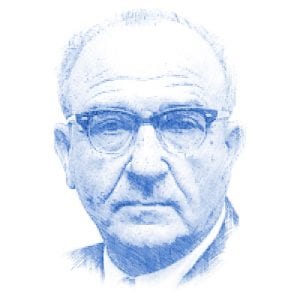
TORAH
NEVI'IM
KETUVIM
Chapter 53
Translation and Transliteration of
Listen to this chapter in Hebrew:
- Commentary
- Buy E-book
- Buy the Israel Bible
1For the leader; on mahalath. A maskil of David.
אלַמְנַצֵּחַ עַל־מָחֲלַת מַשְׂכִּיל לְדָוִד׃
2The benighted man thinks, “Hashem does not care.” Man's wrongdoing is corrupt and loathsome; no one does good.
באָמַר נָבָל בְּלִבּוֹ אֵין אֱלֹהִים הִשְׁחִיתוּ וְהִתְעִיבוּ עָוֶל אֵין עֹשֵׂה־טוֹב׃
3Hashem looks down from heaven on mankind to find a man of understanding, a man mindful of Hashem.
גאֱלֹהִים מִשָּׁמַיִם הִשְׁקִיף עַל־בְּנֵי אָדָם לִרְאוֹת הֲיֵשׁ מַשְׂכִּיל דֹּרֵשׁ אֶת־אֱלֹהִים׃
4Everyone is dross, altogether foul; there is none who does good, not even one.
דכֻּלּוֹ סָג יַחְדָּו נֶאֱלָחוּ אֵין עֹשֵׂה־טוֹב אֵין גַּם־אֶחָד׃
5Are they so witless, those evildoers, who devour my people as they devour food, and do not invoke Hashem?
ההֲלֹא יָדְעוּ פֹּעֲלֵי אָוֶן אֹכְלֵי עַמִּי אָכְלוּ לֶחֶם אֱלֹהִים לֹא קָרָאוּ׃
6There they will be seized with fright —never was there such a fright— for Hashem has scattered the bones of your besiegers; you have put them to shame, for Hashem has rejected them.
ושָׁם פָּחֲדוּ־פַחַד לֹא־הָיָה פָחַד כִּי־אֱלֹהִים פִּזַּר עַצְמוֹת חֹנָךְ הֱבִשֹׁתָה כִּי־אֱלֹהִים מְאָסָם׃
7O that the deliverance of Yisrael might come from Tzion! When Hashem restores the fortunes of His people, Yaakov will exult, Yisrael will rejoice.
MEE yi-TAYN mi-tzi-YON y'-shu-OT yis-ra-AYL b'-SHUV e-lo-HEEM sh'-VUT a-MO ya-GAYL ya-a-KOV yis-MAKH yis-ra-AYL
זמִי יִתֵּן מִצִּיּוֹן יְשֻׁעוֹת יִשְׂרָאֵל בְּשׁוּב אֱלֹהִים שְׁבוּת עַמּוֹ יָגֵל יַעֲקֹב יִשְׂמַח יִשְׂרָאֵל׃
![]() 53:7 The fortunes of His people
53:7 The fortunes of His people
In the first years after Israel’s independence, close to seven-hundred thousand Jews moved to the country, including many survivors of the Holocaust looking to build a new life in God’s Promised Land. Under the leadership of future Prime Minister Levi Eshkol, the Jewish Agency built absorption settlements throughout the country to accommodate the staggering numbers. One was appropriately named Sh’vut Am (שבות עם), ‘the return of the people,’ taken from Psalm 53. Though translated here as “the fortunes of His people,” the words sh’vut amo (שבות עמו) in this verse also mean ‘the return of His people.’ Over the course of a few years, over one-hundred thousand new immigrants lived in Sh’vut Am, and from there went on to build Israel’s future. Indeed, when salvation came to Israel with the return of the captivity, Israel did rejoice.

Prime Minister Levi Eshkol (1895-1969)









